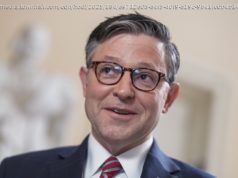The movie and TV star could play both a sexy outlaw and an intense, icy-cool cat, but his enduring charm came from the quick-draw, self-deprecating humor that made him seem like a guy who could be a friend, writes Gene Seymour.
From there, I always guessed we could kick back and I’d start asking you about your long, roller coaster of a career. No matter what room we were in, we’d be there for days as I got your takes on people as varied as Jim Brown, Johnny Carson, Raquel Welch, Roger Moore, Quentin Tarantino, Jackie Gleason, Clint Eastwood, Dean Martin, Elizabeth Taylor, Howard Cosell, Tammy Wynette, Jon Voight and many, many more.
So why wouldn’t I call Burt Reynolds by his first name right off the bat. Didn’t everybody?
This, of course, is on you. In interviews onscreen and off, you were always so relentlessly self-deprecating and compulsively funny that you put everybody at ease whether they were in your immediate company or watching from home. Your charm was omnipresent enough to make one almost forget how roguishly handsome you were and didn’t need the added wit and smarts to have us at «hello.»
One-liners seemed to drop from the sky, into your head and zip like mayflies from your mouth. When talking about some of your box-office misfires, you once said: «My films were the kind they only showed in prions and on airplanes, because nobody could leave.» (OK, it’s possible you weren’t the first to say that, but nobody else said it better.)
The humor wasn’t a put-on, and one sensed nothing else about you was either. You came across always as someone who carried no artifice on you — and as someone who didn’t care for it in others. You explained your capacity for friendship even with skittish, difficult types like Johnny Carson by saying, «If you’re honest and candid with them, they know you want to be their friend.» I’m guessing your candor also created almost as many enemies as friends in the Hollywood salt mines. But we’re here to talk about more pleasant things.
Let me be honest, however, and tell you I’m old enough to remember when your image wasn’t primarily of a sly, smirking outlaw kind of guy but of an intense, icy-cool cat making the rounds through such vintage TV shows as «Riverboat,» «Gunsmoke,» «Route 66» and the 1970-71 TV cop show «Dan August» whose title character you described as having «only two expressions, mean and meaner.»
Those were the kind of roles you seemed sentenced to play forever. Then bigger screens gave you more room to show how playing an action hero didn’t always require a brooding, squinting demeanor. Bye bye, Dan August; come on ahead, «Smokey and the Bandit»
And yet the movies, after all the money you’d made for them, only nominated you for an Oscar once, for best supporting actor in 1997 for «Boogie Nights.» Television, which helped make an ex-footballer-turned-stuntman into a leading man, gave you an Emmy for best lead actor in 1991, for «Evening Shade».
Sure, you would have liked more trophies (speaking personally, we would have liked to see you get something for either «Deliverance» or «The Longest Yard»). But did it matter? As near as we could tell, the work was its own reward. Even in recent years when you had health problems and financial worries and couldn’t walk without a cane, you were reading scripts and having fun being Burt Reynolds, your greatest role.
You said it yourself to USA Today earlier this year: «I’ve been very, very lucky through ups and downs. When you crash and burn, you have to pick yourself up and go on and hope to make up for it. I’ve met some good people and I’ve met some jerks. But that would be the same if you were working for the Ford Motor Company.»
Still fast on the draw, almost to the end. Ten-four, old friend.






